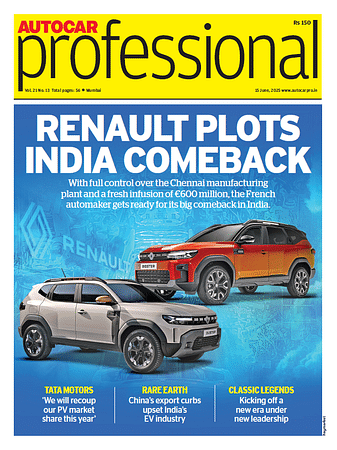SMEV asks NITI Aayog to hike electric two-wheeler subsidy to Rs 40,000 per unit
The Society of Manufacturers of Electric Vehicles moots raising of subsidy to make high-speed, lithium battery-equipped electric two-wheelers attractive to buyers in India.
The Society of Manufacturers of Electric Vehicles (SMEV) in its letter dated August, 9, 2017, has asked the government’s policy think-tank NITI Aayog to incentivise any manufacturer which sells fully CMRV-certified, BIS-certified lithium battery electric two-wheelers at a price of Rs 40,000 anywhere in the country.
In the letter sent by Sohinder Gill, director - Corporate Affairs, SMEV, to Rajiv Kumar, the new deputy chairman of NITI Aayog, Gill says the government’s vision of making India’s passenger mobility all electric, shared and connected by 2032 is in sync with SMEV’s focus.
However, despite electric two-wheelers being an easy route for adoption of electric mobility in the country, the industry as a whole has just sold barely 15,000-20,000 electric scooters per year as compared to around 17 million petrol-engined two-wheelers.
SMEV says that at present the production cost of high-speed lithium battery-equipped e-two-wheelers cost is an estimated Rs 100,000. In spite of the current government subsidy of Rs 22,000, the final purchase cost for consumers remains high, resulting in an estimated 99 percent of e-two-wheeler sales being of low-speed lead battery-equipped variants. As these low-speed scooters do not offer much of a positive ride experience, the need to influence market perception can only be met if high speed and better performing e-two-wheelrs can be made available at a cheaper price compared to their petrol counterparts.
Therefore, SMEV has asked NITI Aayog to raise its subsidy from the existing levels of Rs 22,000 to around Rs 40,000 for at least a year, effectively bringing the cost of E2Ws lower than petrol models and also encouraged two-wheeler manufacturers to plan for economies of scale.
To make sure that manufacturers do not take advantage of the subsidy to increase their margins, a fixed on-road price for electric two-wheelers should be kept at Rs 40,000. The subsidy should be directly transferred to the manufacturer to avoid chances of misuse by graft and middlemen.
RELATED ARTICLES
Continental exits TBR market in India, shifts focus to car and SUV radials
German tyre manufacturer aims to tap the double-digit market growth opportunity for big SUV and luxury car tyres which w...
New ZF SELECT e-drive platform gives EV makers a choice in 100 to 300 kW range
Modular e-drive platform optimally matches 800-volt overall system and components such as the electric motor and power e...
Daimler India CV and BharatBenz deliver 200,000th truck
Daimler India Commercial Vehicles' portfolio includes truck models ranging from 10 to 55 tonnes for a wide variety of ap...





 21 Aug 2017
21 Aug 2017
 8672 Views
8672 Views





 Autocar Professional Bureau
Autocar Professional Bureau




